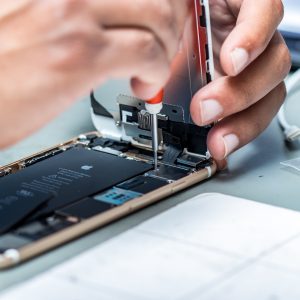It has emerged that Apple replaced some 11 million iPhone batteries during the $29 battery replacement scheme that ran from the end of 2017 right up until December 31st 2018.
Tim Cook shared the information in a meeting with Apple employees and revealed that the tech giant replaced nine to ten million more batteries than deemed normal. Apple generally replaces between one to two million batteries each year making for an increase of more than 500%.
Cook claimed that the battery replacement scheme was one of the reasons Apple’s guidance for the first quarter of 2019 was cut, in line with poorly performing iPhone sales. Such a forecast means Apple now expects revenue of $84 billion, a slight decrease of November’s $89-93 billion estimates.
The $29 replacement scheme was introduced following backlash over an iOS 10 update which included a power management feature that caused older iPhones to slowdown. Such power management features were initiated to prevent random shutdowns and extend the life of the iPhone, however, many consumers claimed planned obsolescence.
Impact on new models
Following an apology regarding the misinformation, Apple then introduced the discounted battery program as an olive branch for disgruntled customers. For devices experiencing slower performances due to a degrading battery, a new battery will restore full functionality. The restoration of existing devices meant customers chose to stick with their current iPhone, as opposed to upgrading to a newer model.
Back in February 2018, Cook admitted that Apple did not consider just how much the battery replacement program would affect iPhone upgrades, but the impact is certainly known now. At the time, Cook said: “We did it because we thought it was the right thing to do for our customers.
“I don’t know what effect it will have for our investors. It was not in our thought process of deciding to do what we’ve done.”
The reason Apple did not foresee the effects of the battery replacement program at an earlier date is unknown, given it ran for the entirety of 2018. However, it is thought that whilst Apple did record higher than usual battery replacements, the true outcome of the program remained unknown until the iPhone XS and XR models were revealed and fewer people opted to upgrade.











